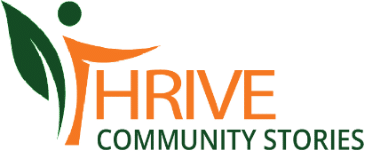Peer Visitor’s Women’s Group Fills in Gaps
By Mike Crist, For The Amputee Coalition
Photos of Paula Free
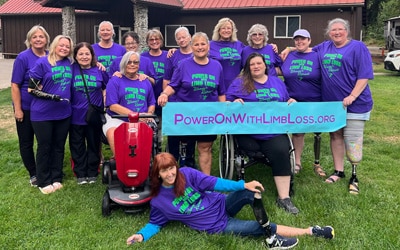 Don’t be fooled by Paula Free’s last name.
Don’t be fooled by Paula Free’s last name.
If you try calling her, you’ll probably have to leave a message. She is anything but free. She’s always busy.
“I’m just one of those people, if nobody else is going to do it, I am going to do it myself,” Paula said.
Her job is physically demanding. She has been a cosmetologist for more than 50 years. She has managed a beauty supply store.
She has also managed a group home for people with developmental and physical challenges.
She is a runner who competes in 5K and 10K races and completed the Eugene, Oregon, half marathon at the age of 64 just six years after the amputation of her lower left leg.
And she has raised two children.
Paula and her husband were involved in a motorcycle accident in 2004. It eventually resulted in her amputation in 2011, and that required a revision a couple of years later after a fall. Regardless, she decided to become even busier.
“The fear and anxiety about losing my foot was relieved by a peer visitor who challenged me to do any and everything that I had done before I lost my foot,” she says on her website. “As a result, I wanted to make sure that every amputee has the experience of having a peer visitor to talk to, ask questions and be empowered by.”
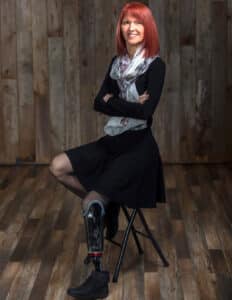 She became a certified peer visitor with the Amputee Coalition, and she trains other peer visitors. And she founded Power On With Limb Loss (poweronwithlimbloss.org) in Springfield, Oregon, in 2016. The nonprofit organization provides amputee peer visits, outdoor events and challenges and monthly support groups.
She became a certified peer visitor with the Amputee Coalition, and she trains other peer visitors. And she founded Power On With Limb Loss (poweronwithlimbloss.org) in Springfield, Oregon, in 2016. The nonprofit organization provides amputee peer visits, outdoor events and challenges and monthly support groups.
“I’m the founder and the executive director,” she said. “And the treasurer, vice president. I do it all, with the help of our board of directors and several volunteers and the help of several grants from the community.” Her partners include Hanger Foundation, the Cow Creek, Three Rivers and Coquille foundations, the Oregon Community Foundation and the Chambers Family Foundation.
Power On hosts a Discover Conference every spring for people with limb loss and limb difference, along with other disabilities, medical professionals and caregivers. But, of course, Paula wanted to do more.
More recently, the organization has hosted the Power On Women’s Retreat in Cottage Grove, Oregon. In September, about 30 women participated in the latest retreat “complete with cabins, campfires, crafts and adaptive activities.”
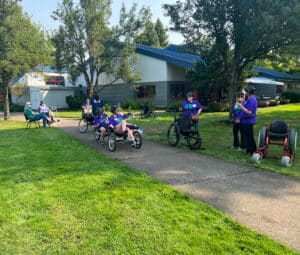 They spent three nights in the Willamette Forest. Activities included adaptive rock wall climbing (one of Paula’s favorites), Bo Yoga (she is an instructor), canoeing and a day at the lake, and there were guest speakers. In 2023, the Association of Academic Physiatrists (AAP) conducted an online needs assessment for female amputees, who are growing in numbers. The AAP says research is limited on challenges faced by women that are different from those faced by male amputees.
They spent three nights in the Willamette Forest. Activities included adaptive rock wall climbing (one of Paula’s favorites), Bo Yoga (she is an instructor), canoeing and a day at the lake, and there were guest speakers. In 2023, the Association of Academic Physiatrists (AAP) conducted an online needs assessment for female amputees, who are growing in numbers. The AAP says research is limited on challenges faced by women that are different from those faced by male amputees.
“This lack of research presents a significant challenge for clinicians and physicians to address the needs of women with limb loss that may vary from men,” said Dr. Roxanne Disla of the James J. Peters VA Medical Center in the Bronx, N.Y., who presented results of the study at the organization’s annual meeting. “Furthermore, male structure and biomechanics tend to be the base for most prosthetic devices. As a result, women with limb loss tend to face significant challenges such as ill-fitting prostheses, skin issues and an increased risk of other health problems.” It follows that these challenges create a need for a different kind of support. Paula and Power On are helping to fill that gap.
“It’s really a beautiful setting,” Paula said. “We can get together and do things together to give each other support.”
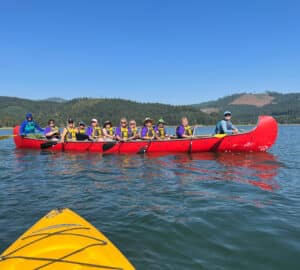 As you would expect with Paula, there’s a full schedule. Maybe a little too full.
As you would expect with Paula, there’s a full schedule. Maybe a little too full.
Paula said she is considering adding more days to the retreat to give the women a chance to recover between adaptive activities instead of trying to do more than one in a single day.
The most important part is the shared experience. The activities and the time together build bonds and prevent feelings of isolation.
Paula explained the value of support in a video interview on YouTube.
“It’s like that 5-year-old mentality,” she said. “You don’t want to go out and play in the yard by yourself or ride a bike by yourself. You want friends to go and do it with you.”
